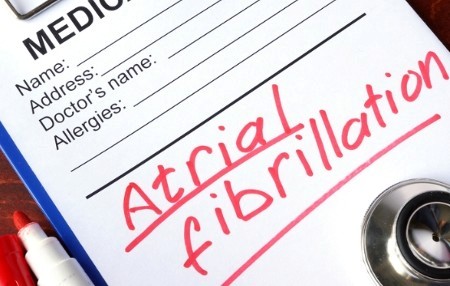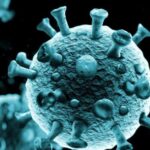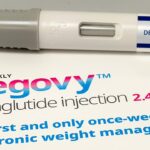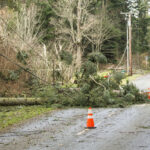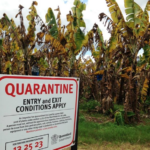May 2, 2020 – I spent May Day, the first of the month, in a hospital emergency room (ER). I have persistent hoarseness in my voice and it has been ongoing for several weeks. More recently I developed a cough. I had few if any other symptoms. The previous week my wife and I went to a COVID-19 assessment centre for testing with the results coming back negative. But my family doctor remained concerned, because my symptoms weren’t going away, and asked me to go to the ER of one of Toronto’s leading trauma centers.
When I arrived they took a new swab for testing, as well as blood work, and a chest X-ray. I will know the COVID-19 test results in the next few days. But it was the blood work that set me on a strange new path of life-changing proportions.
My first blood work showed normal with one exception, Troponin, a complex of proteins that show up in blood when there is a heart injury. This was something that needed investigation.
Before I continue yesterday’s saga, some of my readers know that I had been scheduled for knee replacement surgery at the end of April of this year. In preparation for the operation seven weeks earlier I had a complete medical assessment. I aced all the lab tests and physical examination, my x-rays were clear, my heart function normal, my electrocardiogram textbook, and my blood pressure, the same.
Because of COVID-19, however, all elective surgery across the country was canceled. It will be months before they catch up with the tens of thousands of canceled procedures. I suspect I won’t be in an operating room until 2021.
But let’s get back to yesterday.
What would have triggered a sudden Troponin elevation in my blood? These proteins indicate a potential stroke or cardiac event. But I had felt nothing. I never was light-headed, never in distress. All I had was hoarseness, not even a sore throat, and I had occasional coughing. It turns out that COVID-19 was the likely culprit triggering elevated Troponin and that the virus had attacked my heart muscle leading to atrial fibrillation (aFib).
In the ER, I had completed the three reasons for coming and was getting ready to leave when I was asked to hang around. I was told they wanted to do an electrocardiogram. So they hooked me up to some leads and did a tracing. With that complete I figured, okay, now I can leave. But that’s not what happened. I was suddenly told I was being moved to a stepped-up unit in the ER, placed in an isolation room, and hooked up to a heart monitor. The nurse in attendance after getting all the leads attached turned on the monitor and said, “Oh boy, you are in aFib. Don’t look at the monitor!” I tried not to but it was pretty clear when I did that something bizarre was happening to my heart.
The doctor who admitted me came in and told me I needed a chest ultrasound to get a better picture of my lungs and heart. By that time the second blood test that had been ordered would show them definitively if Troponin levels were rising, a sign of a potential cardiac event. Six hours later, the Troponin levels had risen only slightly. That meant I would be going home that day eventually and not staying in the hospital. Instead, I would be referred to a cardiologist. At that moment I realized that the entire medical regimen of my last fifteen years was coming to an end. I would now have to adjust to a whole new panoply of drugs to help me manage my new state of health.
COVID-19 had now become personal. I had been writing about it since the early onset in Wuhan, and now it had reached my door. No longer an observer, I was very much one of its victims. It was COVID-19 that likely was producing elevated Troponin levels in me just as it was doing in a large number of patients whose hearts were being damaged by the virus.
Going forward for the next few weeks, I expect I will be seen by a cardiologist. For now, I am on blood thinners to ensure I don’t shed clots and end up having a stroke. At the same time, I am on a low-dose beta-blocker to control my aFib. I need to manage my osteoarthritis with alternate pain medication. And if I can get my aFib stabilized, maybe the cardiologists can do cardioversion to shock my heart back into its normal rhythm. Needless to say, when I left the hospital ER after 3:30 p.m. yesterday, I was in a very different headspace. My once dependable heart, so reliable for my first 71 years, was now life-threatening, and the likely cause was this virus that no one had heard of six months before.
Looking back, my wife and I had done everything right.
We had practiced social distancing. We had worn masks anytime we were outdoors. We wore gloves always, washed our faces and hands with religious zeal, and tried not to touch our faces, and we even used separate towels and washed them frequently. This was a discipline that came naturally to us having raised a daughter with congenital heart disease. But it didn’t matter that we had been cautious and followed the recommendations of Health Canada. The virus had penetrated our shields and practices, and now we were living with the consequences.
If you are reading this blog posting, consider this virus as far more than an upper respiratory health threat. If you are not practicing social distancing, please do. If you don’t wear a mask when outside, please do. We probably picked up COVID-19 while shopping, she at a drugstore, and me at a grocery store. In such confined spaces, social distancing is harder, and shelved items and surfaces can be viral hotbeds. Now we shop online and, if we can, have stuff delivered or arrange for curbside pickup.
COVID-19 got us and it can get you in ways you never imagined. You need to have a healthy respect for this new infectious agent which will be with us from now on, and it won’t be the last pandemic we face. Others will follow as we continue to impinge upon the natural world, the source of potential trans-species viruses and bacteria that are waiting there to make the leap to 7.75 billion of us.
